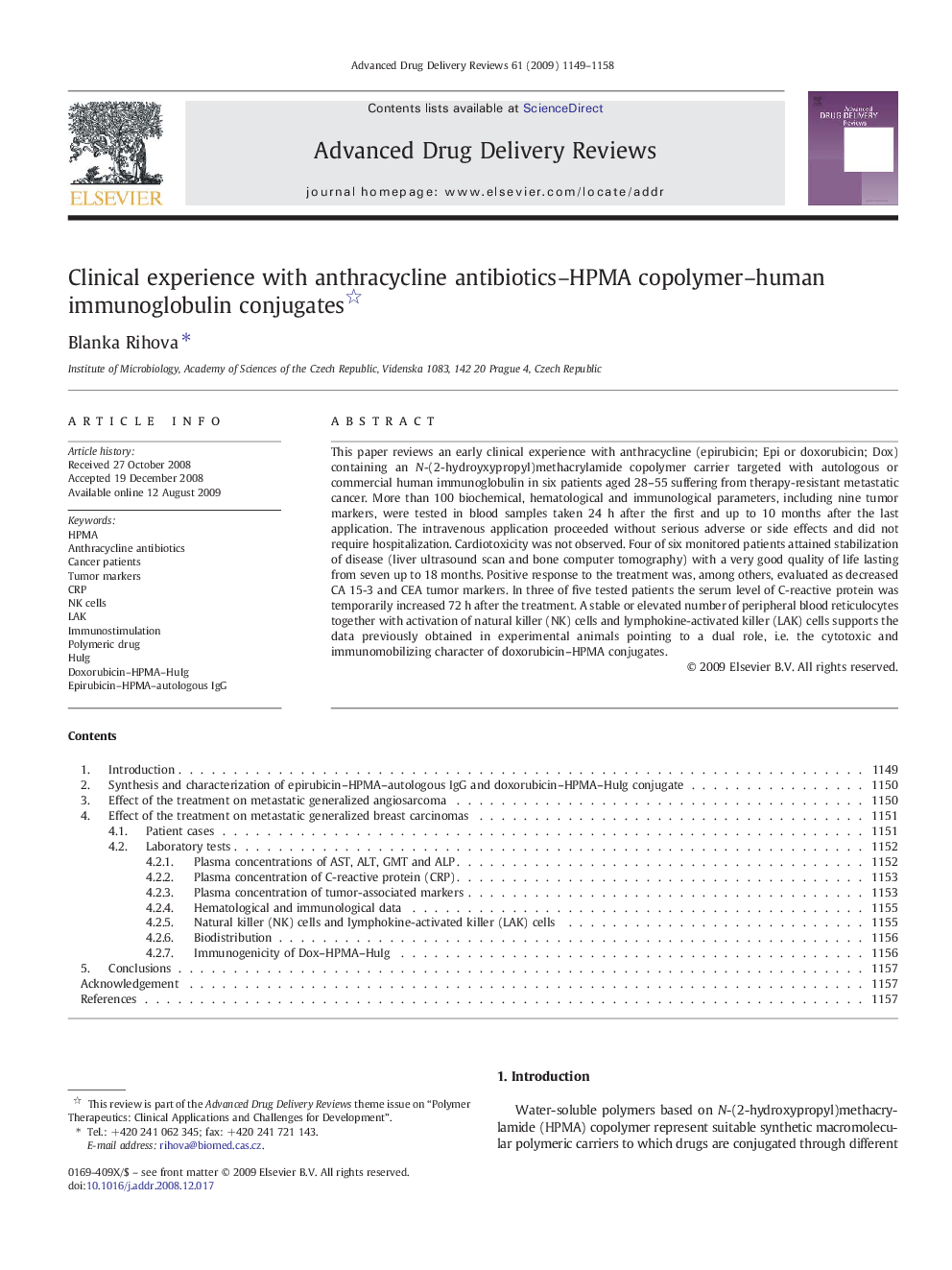| Article ID | Journal | Published Year | Pages | File Type |
|---|---|---|---|---|
| 2071550 | Advanced Drug Delivery Reviews | 2009 | 10 Pages |
This paper reviews an early clinical experience with anthracycline (epirubicin; Epi or doxorubicin; Dox) containing an N-(2-hydroyxypropyl)methacrylamide copolymer carrier targeted with autologous or commercial human immunoglobulin in six patients aged 28–55 suffering from therapy-resistant metastatic cancer. More than 100 biochemical, hematological and immunological parameters, including nine tumor markers, were tested in blood samples taken 24 h after the first and up to 10 months after the last application. The intravenous application proceeded without serious adverse or side effects and did not require hospitalization. Cardiotoxicity was not observed. Four of six monitored patients attained stabilization of disease (liver ultrasound scan and bone computer tomography) with a very good quality of life lasting from seven up to 18 months. Positive response to the treatment was, among others, evaluated as decreased CA 15-3 and CEA tumor markers. In three of five tested patients the serum level of C-reactive protein was temporarily increased 72 h after the treatment. A stable or elevated number of peripheral blood reticulocytes together with activation of natural killer (NK) cells and lymphokine-activated killer (LAK) cells supports the data previously obtained in experimental animals pointing to a dual role, i.e. the cytotoxic and immunomobilizing character of doxorubicin–HPMA conjugates.
